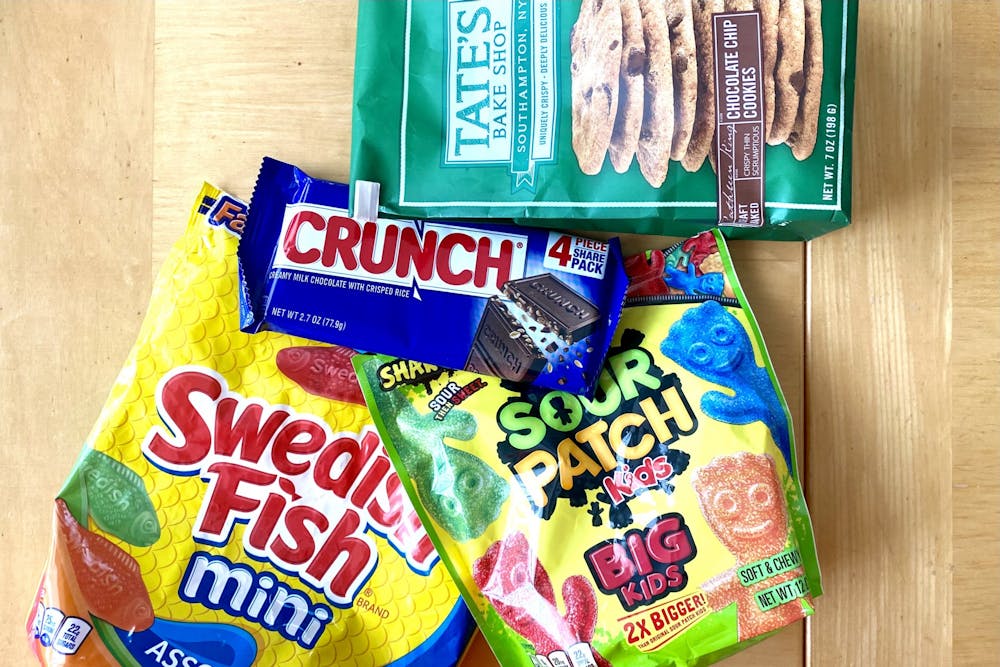Fatty foods were first found hazardous to health in 1940s research correlating high-fat diets with high-cholesterol levels. There is merit to this. Man-made trans fats and some saturated fats are associated with an imbalance in cholesterol levels and heart disease. But not all fatty foods are bad for you. There are plenty of good fats for heart health, like monounsaturated fats — in olive oil — and polyunsaturated fats — in fish, walnuts and canola oil. Unfortunately by the 1980s, the low-fat fad had taken over. Fats — both good and bad — began to phase out of the American diet. Even in the 21st century, a low-fat diet has been an essential tool to combat obesity and reach better heart health. Ironically, the low-fat foods we’ve spent decades touting may not be the healthier option at all. A 2016 study by Stanford researchers actually found higher sugar content in low-fat renditions of products. This is because in order to make low-fat products palatable, food scientists often offset the loss of fat by increasing sugar content. This common exchange — fat for sugar — is problematic.
Today, the sugar of choice is table sugar or sucrose. Sucrose splits into two molecules in the body — glucose and fructose. Glucose is one of the most common sugars in nature and can be processed by almost any cell in the body. Fructose on the other hand can only be broken down in the liver. If the liver becomes overwhelmed with fructose, the fructose can turn into triglycerides — packets of fat that can stockpile in the blood and lead to fatty liver or heart disease. To help University students maintain their health and avoid the negative side effects of certain sugars, it should label nutrition information on all of its foods and drinks and offer a wider variety of juice and milk over soda.
That said, heart harm is not entirely fructose’s fault. Glucose triggers the release of insulin which prepares cells for glycemic consumption. Under a steady stream of glucose, the body turns off much of its fat burning processes. Basically, when you eat sugar, bad fat piles up in the blood without a biological counterbalance to burn it.
Our ancestors were never overly glutinous when it came to sugar consumption. Eighteenth-century humans ate on average 4.9 grams of sugar per day. Modern Americans do not have this power of moderation. The average amount of sugar consumed by an American is a whopping 68 grams of sugar. All the while, the American Heart Association recommends no more than 24 grams of sugar for women and children and 36 grams for men per day.
What can we do about it? The AHA says a huge first step is to swap out sugar-sweetened drinks. Sugary drinks account for 47 percent of added sugars we consume. Drinking water is a great alternative that is calorieless, helps digest food and can help with weight loss. If you aren’t looking to lose weight and searching for a drink with caloric merit, try natural fruit juices as a substitute to soda, sweet tea and the like.
To promote this goal at the University, I think we should try downsizing our wide soda selection and upscaling the availability of juice and milk substitutes. U.Va. Dine does its due diligence in listing food nutrition —- but not drink. U.Va. should start labeling the nutrition of their featured drinks — especially sugar-sweetened drinks. Nutrition labels are proven to make consumers more conscious of what food and drink they intake. Labeling all food and drink online and in-venue would be a low-cost endeavor for the University to support student and staff members cutting down on the sweet stuff.
Furthermore, local healthy food awareness organizations deserve to be given their flowers. The University should work more on collaborating with the likes of Morven Kitchen Garden — an organic garden run on volunteer support in the Charlottesville area. U.Va. Dine should do more to highlight local kitchens endeavors by promoting more pop-up tastings in the midst of Newcomb, O’Hill and Runk. In addition, the University should repeat their hosted farmers market event in the Amphitheater that highlighted local produce of small farmers. These events showcase tasty low-sugar options, give flowers to deserving local farmers and offer a sustainable farm to table methodology.
Listen, I crack down on sugar a lot in this column. It should be noted just like how there are good and bad fats, there are good and bad sugars. By no means should you cut fruit out of your diet after reading this column. Fruits contain essential vitamins — A, E and C — and minerals — magnesium, zinc, phosphorus and folic acid. Plus fruit is fiber rich, which helps with digestive processes. So, the health benefits of consuming fruit outweigh the costs. A good rule of thumb to follow is to avoid eating empty calories. Empty calories are food and drink that have caloric merit but little to no nutritional value. This includes, but isn’t limited to, sugary drinks, alcohol, candy, cakes, junk and fast food. These empty calories provide immediate energy but do not promote strong muscle growth, vitamin acquisition or a sense of satiation.
To close, when it comes to fats you ingest, avoid the man-made trans and saturated fats. Indulge in unsaturated fats. With sugar, chart your sugar intake against AHA guidelines. It’s easy and effective to cut sugary drinks to meet your AHA goals. More broadly, don’t waste your time consuming empty calories. Eat and drink fats, sugars and foodstuffs not only for caloric merit but more importantly for the nutritional value.
Rylan Dawson is an Opinion Writer for The Cavalier Daily. He can be reached at opinion@cavalierdaily.com.
The opinions expressed in this column are not necessarily those of The Cavalier Daily. Columns represent the views of the authors alone.







